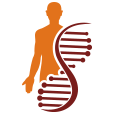
Cambridge Healthtech Institute’s 2nd Annual
Precision Health
Prediction, Prevention, and Early Detection for Health and Wellness
MARCH 7 - 8, 2023 ALL TIMES PST
As the next step after precision medicine, we need to shift from “sick-care” to “healthcare.” Cambridge Healthtech Institute’s 2nd Annual Precision Health meeting convenes the main stakeholders in advancing precision health, focusing on prediction, prevention, and early detection for individualized health and wellness. Technology innovations driving precision health include community-wide genetic screening and early disease detection and risk management, preventative health strategies, AI and digital health tools, at-home diagnostics and monitoring, personalized lifestyle, and wellness. Investment, regulatory, and market access strategies for the emerging precision health technologies will be discussed.